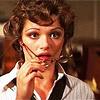Take a photo of a barcode or cover
Fantastic fictional account of war illness based on real WWI happenings.
I've been meaning to read this book for 25 years and it didn't disappoint. I was surprised that the central figure is the psychologist William Rivers - I'd always assumed that it was Siegfried Sassoon.
Rivers is a wise, compassionate, and rational protagonist. I really liked him. His musings on masculinity and the ethics of military rehabilitation were really thought provoking.
The prose is sparse and incisive and the overall result is an incredibly moving portrayal of trauma, healing, comradeship and duty, with a clear anti-war message and compelling characters.
Rivers is a wise, compassionate, and rational protagonist. I really liked him. His musings on masculinity and the ethics of military rehabilitation were really thought provoking.
The prose is sparse and incisive and the overall result is an incredibly moving portrayal of trauma, healing, comradeship and duty, with a clear anti-war message and compelling characters.
emotional
reflective
sad
slow-paced
Plot or Character Driven:
Character
Strong character development:
Complicated
Loveable characters:
Complicated
Diverse cast of characters:
No
Flaws of characters a main focus:
Yes
I was really hoping I would enjoy this book a lot more than I did. It has elements that I love, such as the effects of war on the mind and an analysis of ethics in ‘healing’ anti-war perspectives. Had there been more focus on these themes I’m sure I would have enjoyed the experience a lot more. Unfortunately, I found there were large sections of this book that were slow and unnecessary. I also found myself confused a lot. I regret that my experience of this book was not as good as everyone else’s. Perhaps I was not in the correct mental space for this book and I may revisit it again, or read the rest of the series, at a later date.
Through one sleepless night, I read this. An intensely intimate, spare and gripping novel about the asylum at Craiglockhart in Edinburgh, where soldiers suffering shellshock and other psychological problems were sent during the First World War. Here, they meet Dr Rivers, an anthropologist and psychiatrist, who tries to help them cope with the trauma of the trenches, and ultimately make them appear sane enough that they can credibly sent back there. Among these patients are Siegfried Sassoon and Wilfred Owen, who will go on to become celebrated poets. As I have studied their poetry and visited the grounds of Craiglockhart, the world Barker described felt very tangible to me, but it is her skill of writing dialogue that captures the humanity of a person and the things unsaid that makes this book so compelling. In a few words, she makes her characters utterly vivid. Normally, I would avoid the subject of WW1, but had heard so many good things about this book that I decided to try reading it: and I'm glad that I did. Barker doesn't tell me anything I haven't read before about WW1, and trauma is certainly a subject I'm familiar with, but in her portrait of the patients and their doctor, who is growing more and more frayed himself, she evokes a depth of compassion. There are many dilemmas for Dr Rivers, particularly whether it is right to send men back to the Front, and many ethical problems for the reader. This novel seems to prove that witnessing atrocity has its own power: that sitting with someone and listening and letting them be seen and heard gives them back something that atrocity has taken from them. This is not a very hopeful book, but there is solace in the descriptions of slow healing and of the ways in people can find ways to communicate with one another.
challenging
dark
emotional
reflective
medium-paced
Plot or Character Driven:
Character
Strong character development:
Yes
Loveable characters:
Yes
Diverse cast of characters:
No
Flaws of characters a main focus:
Yes
Something I'll reread later. I'm overwhelmed with reading obligations.
dark
emotional
informative
sad
slow-paced
I was surprised to like this book as much as I did. This one has a lot to say about the mental toll of warfare and the futility of war. I found the Rivers, based on a real-life psychiatrist, to be quite progressive in his views and his treatment of the soldiers who cross his path.
dark
emotional
hopeful
reflective
sad
slow-paced
Plot or Character Driven:
Character
Strong character development:
Yes
Loveable characters:
Yes
Diverse cast of characters:
Yes
Flaws of characters a main focus:
Yes
Fascinating, immersive story with characters that will linger long after the book has been shut. Beautifully understated writing.
adventurous
challenging
emotional
inspiring
reflective
sad
medium-paced
Plot or Character Driven:
A mix
Strong character development:
Complicated
Loveable characters:
Yes
Diverse cast of characters:
Complicated
Flaws of characters a main focus:
Complicated







